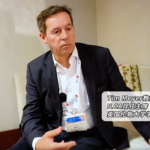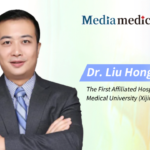
Editor’s Note: With the crisp autumn breeze and the sweet fragrance of osmanthus in the air, the Second One Health Antimicrobial Resistance Control Conference, hosted by the Zhejiang Pharmaceutical Association and organized by the Microbial Resistance and Control Committee of the Zhejiang Pharmaceutical Association, the First Affiliated Hospital, Zhejiang University School of Medicine, and the National Key Laboratory for Diagnosis and Treatment of Infectious Diseases, officially commenced in Hangzhou. This conference brought together leading experts from around the world to delve into the key challenges and advances in antimicrobial resistance control. It served as a significant platform for presenting the latest research findings and sharing practical experiences, fostering global efforts to combat antimicrobial resistance (AMR).Opening Ceremony
On this beautiful autumn day in Hangzhou, the Second One Health Antimicrobial Resistance Control Conference officially kicked off.
The conference began with a warm welcome from the Executive Chairman, Dr. Xiaoyang Lu from the First Affiliated Hospital, Zhejiang University School of Medicine, who extended greetings to the distinguished leaders, guests, and participants. Dr. Lu introduced the attending leaders and guests, including President Yuanchang Shao, Secretary General Zhian Wang, and Supervisory Chairperson Yuehua Chen of the Zhejiang Pharmaceutical Association; Dr. Guoqing Wei, Vice President of the First Affiliated Hospital, Zhejiang University School of Medicine; Dr. Yonghong Xiao, Deputy Director of the National Key Laboratory for Diagnosis and Treatment of Infectious Diseases and Chairperson of the Microbial Resistance and Control Committee of the Zhejiang Pharmaceutical Association; Dr. Chin-kei Lee from the WHO China Office; Director Xiaolin Liu from the National Health Commission’s Rational Drug Use Expert Committee Office; Dr. David Paterson, Director of the Infectious Diseases Institute at the National University of Singapore; and Dr. Wenhong Zhang, Director of the Infectious Diseases Department at Huashan Hospital, Fudan University and Director of the National Center for Infectious Diseases.
Following the introductions, Dr. Yonghong Xiao took the stage to deliver the welcome speech, officially marking the beginning of the conference. On behalf of the organizing committee, Dr. Xiao warmly welcomed the attending experts and scholars from around the world. He emphasized that microbial resistance has become a major global public health challenge, posing a serious threat to human health. This conference aims to bring together experts from various fields to exchange research findings and explore new strategies for resistance control. He called on experts from all fields to collaborate and promote the One Health approach. Dr. Xiao expressed his gratitude to all supporters of the conference and wished the participants not only gain valuable knowledge and insights from the academic exchange but also enjoy the unique cultural charm of the historic and modern city of Hangzhou.
Remarks by Key Leaders
President Yuanchang Shao highlighted in his address that antimicrobial resistance (AMR) has become a major public health challenge worldwide, necessitating the rational use of drugs and effective resistance control measures. He noted that China has actively implemented a comprehensive strategy to curb resistance and achieved remarkable results, though challenges remain. Against this backdrop, the Microbial Resistance and Control Committee of the Zhejiang Pharmaceutical Association was established and successfully organized its first conference. This year’s conference, themed “One Health: United Efforts to Combat Resistance,” aims to foster in-depth exchanges on resistance control theories and strategies, mechanisms of resistance, and transmission pathways. President Shao expressed his gratitude to the organizing team and extended sincere greetings to all the attending experts and scholars, wishing for a successful conference that contributes significantly to antimicrobial resistance control.
Dr. Guoqing Wei, on behalf of the First Affiliated Hospital, Zhejiang University School of Medicine, congratulated the conference on its successful opening and welcomed all participants. He reflected on the hospital’s development since its establishment in 1947, emphasizing the pivotal role played by the Department of Infectious Diseases in combating the COVID-19 pandemic. Dr. Wei stressed that microbial resistance poses a major global public health challenge that requires urgent and coordinated action. The hospital places great importance on rational antimicrobial use and resistance control and has achieved notable progress in these areas. This conference brings together top interdisciplinary experts from both home and abroad to showcase the latest research findings and practical case studies, with the hope of further advancing the implementation of microbial resistance control efforts.
Awards for Outstanding Papers
During the award ceremony for outstanding papers, Dr. Yonghong Xiao expressed that this year’s conference received an enthusiastic response, with nearly 200 high-quality paper submissions covering a wide range of fields including healthcare, agriculture, environment, and public health. After a rigorous review by the academic committee, 12 papers were selected for oral presentations, 110 for poster presentations, and the rest included in the conference proceedings. These papers showcased the efforts and achievements of young talents and professionals in the field of antimicrobial resistance control.
Dr. Xiao announced the names of the award winners, including Wei Huang from Shenzhen People’s Hospital, Qiaoyu Wang from Yangzhou University, Zeqiang Zhan from Shanghai Jiao Tong University, Yanan Wang from Henan Agricultural University, and Tao Chen from the First Affiliated Hospital, Zhejiang University School of Medicine. Together with President Yuanchang Shao, Secretary General Zhian Wang, Supervisory Chairperson Yuehua Chen, and Dr. Guoqing Wei, Dr. Xiao presented the certificates of honor to the awardees, recognizing their outstanding contributions to the field and encouraging more professionals to engage in and advance the cause of antimicrobial resistance control.
Plenary Session
The plenary session, co-hosted by Dr. Yonghong Xiao, Director Xiaolin Liu, and Dr. Xiaoyang Lu, gathered top experts from around the world for in-depth discussions on global and regional challenges in antimicrobial resistance, management practices, and scientific progress.
Dr. Chin-kei Lee presented a detailed analysis of the current global and regional challenges in antimicrobial resistance from the perspective of the WHO and proposed strategies to address them. He emphasized the critical role of international cooperation and policy support in tackling the issue.
Dr. David Lye Chien Boon from the Infectious Diseases Research and Training Office at Singapore’s National Center for Infectious Diseases shared the successful experience of antimicrobial stewardship in Singapore hospitals over the past decade. He highlighted how scientific management, education and training, and continuous monitoring have effectively reduced resistance rates.
Academician Lanjun Li of the Chinese Academy of Engineering focused on the relationship between the microbiome and host immune metabolism, revealing the crucial role of microbiome balance in maintaining immune function and regulating metabolism, thus offering new insights into understanding resistance formation.
Dr. David Paterson discussed the topic “Can New Antimicrobials Solve the Resistance Crisis?” He analyzed the current crisis in antimicrobial resistance and explored the potential and limitations of new antimicrobial drugs in addressing this crisis.
Dr. Wenhong Zhang explored the prioritization of pathogens during pandemics from a clinical perspective. He emphasized the importance of scientifically allocating medical resources based on factors such as pathogen transmission capacity, pathogenicity, and public health impact.
Dr. Yunsong Yu from Zhejiang Provincial People’s Hospital provided a detailed overview of advancements in the treatment of resistant-positive bacteria, introducing the latest treatment strategies, drug development updates, and clinical practice experiences, offering valuable insights for clinicians.
Lastly, Dr. Yonghong Xiao gave a comprehensive overview of the global status of One Health antimicrobial resistance control, analyzing successful experiences and challenges faced by different countries and disciplines. He reiterated the necessity of strengthening interdisciplinary international cooperation and promoting knowledge sharing and technological exchange.
Conclusion
This conference was not only an academic exchange event but also a platform for building consensus and fostering collaboration. Experts engaged in in-depth discussions on various topics related to antimicrobial resistance control, sharing the latest research findings and practical experiences. The successful convening of this conference highlighted the shared concern and firm resolve of the global community to tackle the issue of antimicrobial resistance. We look forward to ongoing efforts and collaboration to collectively meet the challenges posed by antimicrobial resistance and contribute to the health and well-being of humanity.


